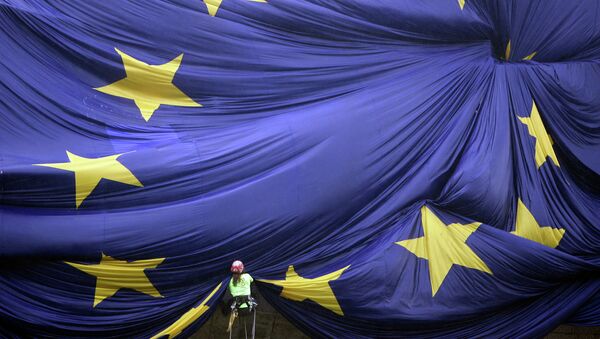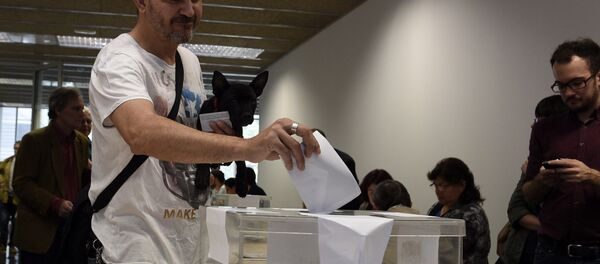"Even the most stubborn romantics have finally understood that the European Union is in serious trouble, which is likely to become deeper in the coming months," Bernd Riegert said.
There is no lack of examples. This month, Eurosceptic Andrzej Duda secured a surprising victory over the incumbent president in what some view as a major signal of a possible shift in Poland's political landscape in the coming parliamentary elections.
Let's make the European Union work for Britain rather then Britain working for the European Union.
— Support Tory (@SupportTory) 22 мая 2015
Then there is Greece that is still trying to reach an agreement with a group of international lenders to unlock bailout money that would help Athens save the country's struggling economy and avoid leaving the Eurozone, or Grexit.
Grexit getting closer. It would be foolish to think this won't have contagion effects https://t.co/fZNGzsk3rg
— Roger E. A. Farmer (@farmerrf) 22 мая 2015
If these tensions do not seem to be worrying enough, keep in mind that eurosceptics are also on the rise in Spain, Portugal and Hungary, Riegert noted.
While discontent with the European integration is mounting, champions of the union, including Germany, Belgium, Luxembourg, the Netherlands and to a certain extent France, are acting like nothing is happening.
"Following existing policies will not be enough. Centrifugal force has picked up the momentum," Riegert warned.
There is no obvious solution to this problem since bloc members seem to have conflicting goals but their worries are justified and should not be ignored.
There are also those that consider the EU institutions to be inefficient in terms of how they spend and allocate money and resources.
Although something should be done to address these concerns, it is unlikely to happen. "We should not expect any fundamental EU reforms, which would suit the UK, Spain, Greece, Poland and Germany. The most probable scenario is the following: current policies will stay," Riegert said.
In the meantime, the European Union will wait for the next presidential election in France, slated for 2017. Should France choose a Eurosceptic as its leader, "the existence of a community, which grew and expanded for six decades, will come to an end," the journalist said.



